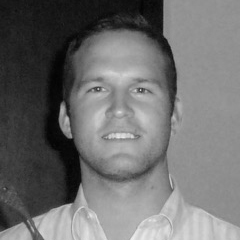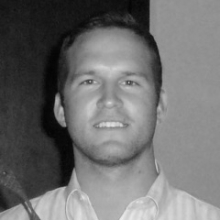Reflections on the ETL Conference: A Student Perspective
 As a current second-year law student at the University of Denver Sturm College of Law, having the opportunity to attend the 5th Annual Educating Tomorrow’s Lawyers Conference last month felt a little bit like eavesdropping on my parents as they discussed what my brothers and I would be getting for Christmas.
As a current second-year law student at the University of Denver Sturm College of Law, having the opportunity to attend the 5th Annual Educating Tomorrow’s Lawyers Conference last month felt a little bit like eavesdropping on my parents as they discussed what my brothers and I would be getting for Christmas.
I was there to work. But as I sat in the back of the vibrant third-floor conference hall at the Curtis Hotel in downtown Denver, chipping away at my laptop keyboard, I couldn’t help but listening and feeling as though the ideas I was hearing were somehow not meant for my ears.
Perhaps I felt this way because when I decided to go to law school, many people told me told me I was making a terrible choice. The general consensus of most people, practicing attorneys included, seemed to be that the only way to get a good job at all after law school was to either go to a top-ten ranked university or finish in the top ten percent of my class.
And yet there I was, working an event for two-and-a-half days that drew some of the brightest law professors, attorneys, and university directors from across the country who had assembled to discuss essentially one topic: how to improve my law school experience and the experience of other students like me so that we can be better prepared to enter the legal workforce and find the jobs we want.
It was extremely encouraging.
Many of the presentations and open conversations at the ETL Conference revolved around how to develop meaningful learning outcomes in law school, how to measure those learning outcomes, and ultimately how to turn those learning outcomes into tangible hiring criteria for legal employers. There was a great deal of intellectual ground covered, and it was exciting to see such a large group of people so invested in improving my educational experience and my future prospects.
There were presentations from recruiters at law firms, discussions between law professors about how to teach students the characteristics we need to succeed in the workforce, and debates with career development directors on how to take all that information and use it to help students find jobs.
But maybe the most interesting aspect of the ETL Conference for me were the results from the Foundations for Practice survey discussing what more than 24,000 lawyers across the country are looking for in new attorneys. I was surprised to learn that traits like character, integrity, and resilience were identified as more necessary for young lawyers right out of law school than certain legal skills such as researching and issue spotting.
For me and other law students like me who will soon enter the workforce, it’s encouraging to know that legal employers say they value more than the traditional “top ten school, top-ten class percentage” criteria when making hiring decisions. That’s not to say, of course, that having those accomplishments on a resumé shouldn’t be looked at as extremely impressive. Rather, it’s simply uplifting to know that students can get involved with other activities that showcase traits like work-ethic and character and know that those activities can and should be considered by legal employers when the time comes to hire new associates.
If I could share one insight with other law students about what I learned from the ETL Conference, I would tell them to continue working hard in the classroom but also to get involved with other experiences that can help an employer understand what kind of person they are. Whether it’s a school journal, a mock trial team, work experience, or a clinical program, there are things that each of us can do to maximize our strengths, show our value, and increase our chances of landing the job we want one day.
Change is never easy, and it will likely take some time before many of the big ideas discussed at the ETL Conference come to fruition. But as someone whose future is directly impacted by how law schools teach and how law firms hire, I left the ETL Conference with the optimistic knowledge that there is a dedicated group of educators, attorneys, and school officials working hard everyday to bridge the gap between legal education and legal employment.
Mark Staines is a second-year law student at the University of Denver Sturm College of Law and contributes to IAALS Online. Please direct inquiries about this post to iaals@du.edu.



